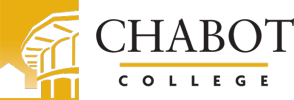
Humanities
This program map from the 2024-2025 catalog year represents one possible pathway to complete this program. Your pathway may vary depending on your transfer plans and also previous college credit, including AP Test scores, concurrent enrollment courses and high school articulated courses.
I'm ready to get started. What do I do next?
- Review this program map to get an overview of the required courses
- Meet with a counselor to develop your customized student education plan www.chabotcollege.edu/counseling
- Use DegreeWorks, an online student education planning tool, to track your progress toward graduation www.chabotcollege.edu / admissions / degreeworks
What can I do with this major?
Careers include: Educator, art historian, museum curator, writer, artist, musician, graphic designer, public servant, physician, nurse, business person, film-maker, social media influencer, human resources worker, and technology consultant.
Transfer majors: humanities, philosophy, classics, liberal arts, art history, pre-med, religious studies.
If considering a double major or minor, humanities pairs well with: philosophy, art history, religious studies, art, music, design, architecture, political science, history, English, creative writing, psychology, sociology, anthropology, pre-med, nursing, and film studies.
Learning and Career Pathway
- Social Sciences, Humanities & Education
Icon Key
Semester 1
English 1- Critical Reading and Composition
Math Course for General Education: see a counselor to choose the appropriate course.
General Education Course- see a counselor to choose the appropriate general education pattern and general ed course option for this term.
General Education Course- see a counselor to choose the appropriate general education pattern and general ed course option for this term.
Semester 2
PHIL
50
Introduction to Philosophy
RELS
50
Religions of the World
HIS
1
History of Western Civilization to 1600
General Education Course- see a counselor to choose the appropriate general education pattern and general ed course option for this term.
General Education Course- see a counselor to choose the appropriate general education pattern and general ed course option for this term.
Semester 3
Options course #1
Philosophy course option (required core)
Humanities course option (required core)
General Education Course- see a counselor to choose the appropriate general education pattern and general ed course option for this term.
Elective- see a counselor to choose a course that counts for elective units (can be any credit course).
Semester 4
HIS
2
History of Western Civilization Since 1600
Options Course #2
Elective- see a counselor to choose a course that counts for elective units (can be any credit course).
Elective- see a counselor to choose a course that counts for elective units (can be any credit course).
Elective- see a counselor to choose a course that counts for elective units (can be any credit course).
Options Courses
Option courses (Choose 6 units from at least 2 different disciplines)